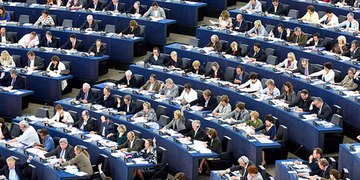
An “effective and comprehensive European whistle-blower protection programme” should be proposed “immediately” by the EU Commission, urges European Parliament in a resolution voted on Tuesday
MEPs deplore the Commission’s failure, so far, to deliver any legislative proposals to establish a minimum level of protection for whistle-blowers who help protect the EU budget against fraud.
They so propose a programme which should include whistle-blower protection mechanisms for companies, public bodies and non-profit organisations, says the text of the non-binding resolution, which was approved by 607 votes to 16, with 70 abstentions.
MEPS also advocate setting up an independent EU body, with offices in EU member states, to help internal and external whistle-blowers to use “the right channels to disclose their information on possible irregularities” affecting the EU’s financial interests.
“We may have good rules to protect whistle-blowers within the EU institutions, but at national level investigative journalists or concerned citizens still face the risk of ending up in court. Just think of the ‘Luxleaks’ whistleblowers, whose only aim was to expose tax evasion by multinational companies”, said rapporteur Dennis de Jong (GUE/NGL, NL) .
“My report contains many proposals to harmonize the protection of whistle-blowers where alleged fraud and corruption involving EU funds are at stake, such as better procedures within the EU institutions themselves or one-stop-shops manned by experts who know how to deal with information from whistleblowers and who can guarantee personal data protection”, he concluded.
MEPs also call for a special unit to be established within the European Parliament, with dedicated facilities (i.e. hotlines, websites, and contact points) to receive information from whistle-blowers relating to the financial interests of the Union.
This unit would also advise and help protect whistle-blowers against any possible retaliatory measures, until the above-mentioned independent EU body is established. They also urge the EU Commission to set up similar procedures for itself.
Link: European Parliament
This publication has been produced within the project European Centre for Press and Media Freedom, co-funded by the European Commission. The contents of this publication are the sole responsibility of Osservatorio Balcani e Caucaso and its partners and can in no way be taken to reflect the views of the European Union. The project's page

 European Parliament: MEPs call for EU-wide protection for whistle-blowers
European Parliament: MEPs call for EU-wide protection for whistle-blowers




 All the contents on the Osservatorio Balcani e Caucaso website are distributed with a
All the contents on the Osservatorio Balcani e Caucaso website are distributed with a 